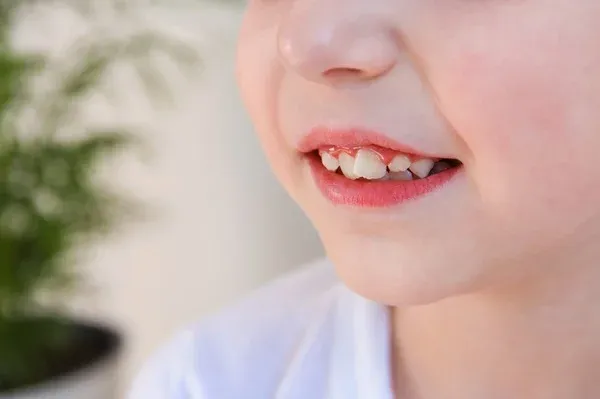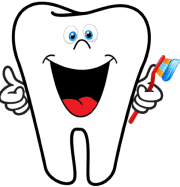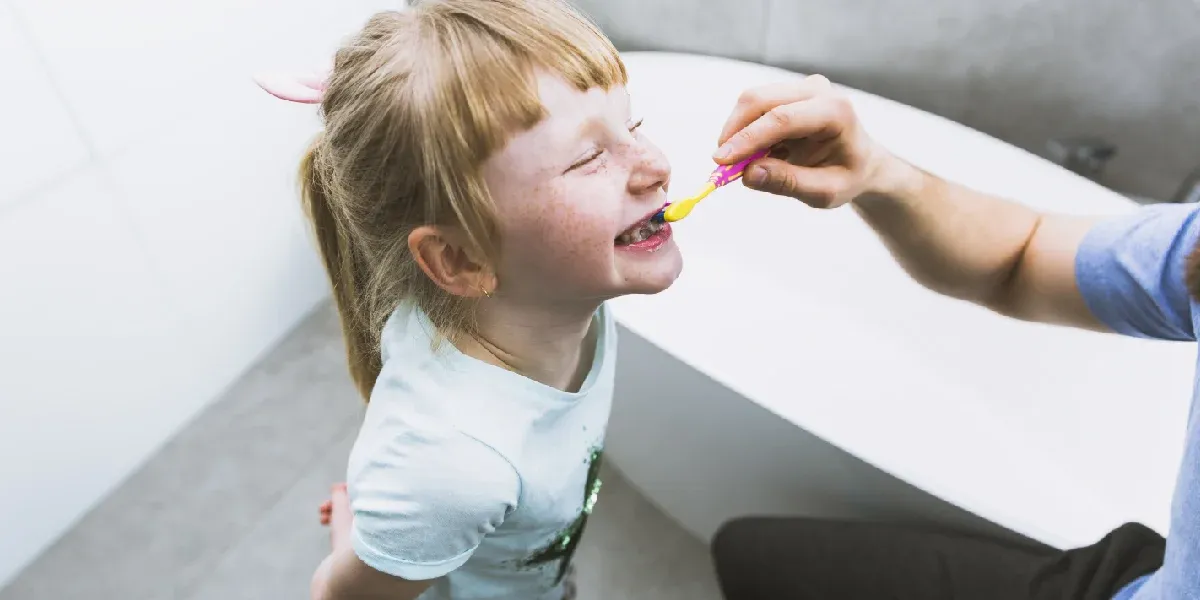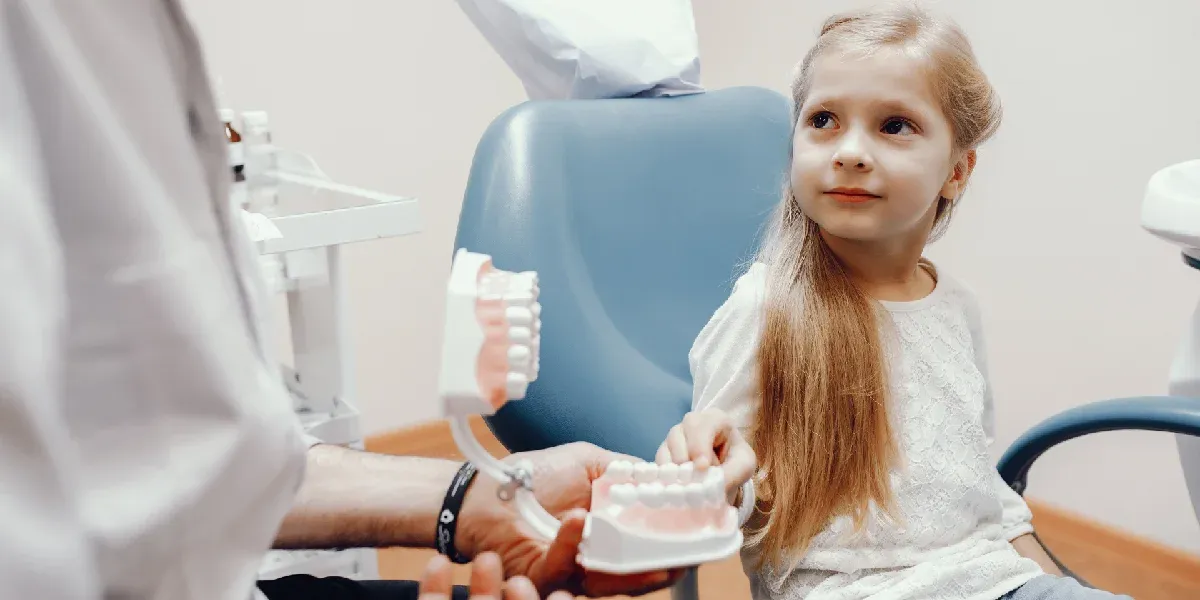
Orthodontic Challenges Caused by Neglected Kids' Oral Hygiene
Common Issues and Solutions
Keeping up with good oral hygiene when kids are young is about more than just avoiding cavities; it's essential for making sure their teeth grow the right way. When kids don't take care of their teeth, it can lead to much bigger problems, like crooked or crowded teeth and even issues with how their jaw develops.
Neglecting oral hygiene leads to more complicated (and expensive) orthodontic treatments later. Let’s look into the most common orthodontic challenges that come from poor oral care in kids and share some simple tips to help prevent these problems. Hence, your child's smile stays healthy and bright.
Habits That Contribute to Neglected Oral Hygiene in Kids
When it comes to kids, building good habits can be tricky, especially when it comes to oral hygiene. Several every day habits can lead to poor dental care, and these bad habits often start early. Here are a few that can contribute to neglected oral hygiene:
- Inconsistent Brushing and Flossing: Many kids either skip brushing or don't do it thoroughly. Flossing, on the other hand, is often ignored altogether. Without a consistent routine, plaque builds up, leading to tooth decay and eventually orthodontic issues like crowded teeth.
- High Sugar Consumption: Let's face it, kids love sugary snacks and drinks. Unfortunately, frequent consumption of these leads to tooth decay, and decayed teeth can affect how their adult teeth come in, potentially causing misalignment.

- Fear or Anxiety About Dental Visits: It's common for kids to feel nervous about visiting the dentist, which can lead to skipped appointments. Minor problems like cavities or gum issues can worsen without regular cleanings and checkups, leading to bigger orthodontic challenges.
- Lack of Parental Supervision: Younger children often need help brushing and flossing correctly. When parents aren't actively involved in supervising their child's oral care routine, it's easy for kids to miss necessary steps, like brushing for two full minutes or flossing between all their teeth.
- Prolonged Use of Pacifiers or Thumb Sucking: While these habits might seem harmless during infancy, they can lead to improper tooth and jaw development if they continue too long. It can cause issues like an open bite or other misalignments that require orthodontic treatment.
Common Orthodontic Issues Linked to Poor Oral Hygiene
When kids neglect their oral hygiene, it doesn't just result in cavities; it can cause many orthodontic problems that might not become obvious until later in life. Here are some of the most common issues:
- Tooth Decay: When kids don’t clean their teeth properly, plaque builds up, leading to cavities. These cavities can weaken the teeth, making them more likely to shift or become misaligned. In some cases, tooth decay can cause teeth to fall out prematurely, leading to spacing issues as adult teeth come in.
- Gum Disease: Poor brushing and flossing can lead to gum disease, even in children. Early-stage gum disease, like gingivitis, can cause inflammation and receding gums, which may cause teeth to shift or crowd together.
- Premature Tooth Loss: When baby teeth fall out too early (often because of tooth decay), it can create a domino effect. Adult teeth may not have the required space to come in properly, resulting in crooked or overcrowded teeth.
- Crowding and Misalignment: Plaque buildup and gum issues can make the teeth shift out of place, leading to crowding or other alignment problems. It often requires braces or other orthodontic treatments to correct when this happens.

Neglecting oral hygiene in the early years can set the stage for various orthodontic problems that will only worsen without timely treatment.
Long-Term Consequences of Untreated Oral Hygiene Problems
If poor oral hygiene isn't addressed early on, the impact on a child's teeth and overall dental health can be long-lasting. Here are some of the most significant long-term consequences:
- Jaw Development Issues: When teeth are out of alignment due to neglected oral care, it can lead to malocclusion (improper bite) or even problems with jaw development. It can cause difficulties with chewing and speaking and may require more complex orthodontic treatments like braces or surgery in severe cases.
- Prolonged Orthodontic Treatment: The longer dental issues go unaddressed, the more difficult they become to correct. What could have been a simple intervention with early care can turn into a lengthy and complicated orthodontic treatment plan involving braces, retainers, or other appliances.
- Increased Risk of Dental Diseases: Misaligned teeth and crowded spaces are more challenging to clean, making it easier for plaque and bacteria to build up. This can lead to chronic problems like gum disease and even increase the risk of tooth decay later in life.
- Impact on Self-Esteem: Kids who develop visible dental issues like crooked or overcrowded teeth may feel self-conscious about their smile, especially as they grow older. Their confidence in social situations and their emotional well-being are affected by this.
In short, poor oral hygiene during childhood can lead to more than just minor dental issues—it can impact their health, comfort, and confidence as they grow.
Simple Solutions for Preventing Orthodontic Problems
While the effects of neglected oral hygiene can be severe, the good news is that many orthodontic issues are preventable with proper care and habits. Here are some practical solutions to help ensure your child maintains a healthy smile:
- Daily Oral Care Routine: Establishing a solid routine for brushing and flossing is the foundation of good oral health. Encourage kids to brush their teeth at least twice daily for two minutes and to floss regularly to remove plaque from hard-to-reach areas between teeth.
- Regular Dental Checkups: Scheduling regular dental visits is key to catching potential problems early. Dentists can provide professional cleanings, monitor oral health, and identify tooth alignment or jaw development issues before they become more serious.
- Proper Nutrition: A balanced diet low in sugary foods and drinks supports strong teeth and gums. Encourage children to eat calcium-rich foods like dairy products, leafy greens, and almonds to promote healthy dental development.
- Use of Sealants and Fluoride Treatments: Dentists can apply sealants to protect the grooves of molars from cavities and provide fluoride treatments to strengthen enamel. These preventive measures help reduce the risk of tooth decay, preventing orthodontic complications.
- Early Orthodontic Evaluations: If there are any concerns about the alignment of your child's teeth, it's a good idea to consult an orthodontist early. They can assess whether early interventions like spacers, retainers, or other appliances can help guide teeth into the correct position before more intensive treatment is needed.
By establishing these habits and routines, you can help prevent the need for complicated orthodontic treatments in the future and keep your child's smile healthy and bright.
Your Child's Roadmap to a Brighter, Healthier Smile
Good oral hygiene from an early age can make all the difference in preventing long-term orthodontic issues. By teaching kids the importance of daily brushing, flossing, and regular dental visits and by considering early orthodontic evaluations, you can help ensure that their teeth develop properly and avoid the need for more complex treatments down the road.
Don't wait and start building healthy habits today to give your child a confident, healthy smile for life!
Contact your kids' dentist in Stockton, Dr. Sajjad Rizvi, D.D.S. at Happy Kids Dental, to know more about orthodontic challenges caused by neglected kids' oral hygiene.
Resource:
The Role of a Pediatric Dentist: Keeping your Child’s Teeth Healthy
*This media/content or any other on this website does not prescribe, recommend, or prevent any treatment or procedure. Therefore, we highly recommend that you get the advice of a qualified dentist or other medical practitioners regarding your specific dental condition*
Subscribe To Our Newsletter
Get Updates And Learn From The Best


